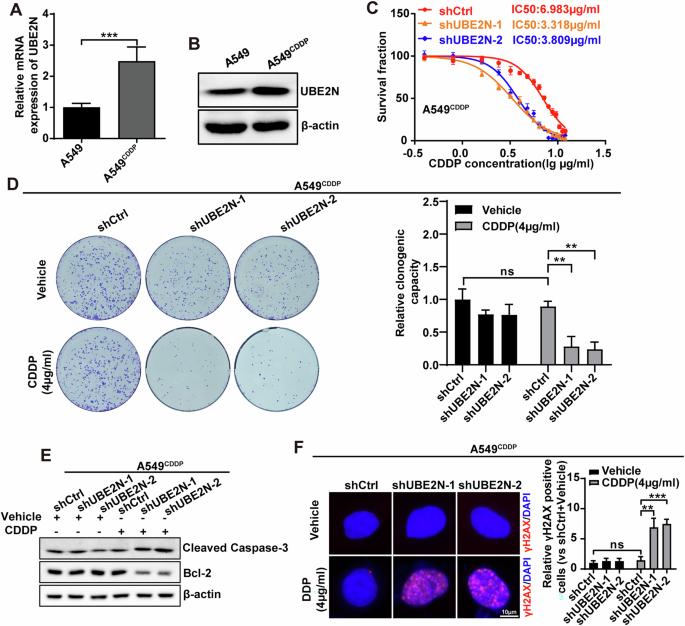抑制UBE2N可消除肺腺癌的化疗耐药和转移。
IF 5
3区 医学
Q1 BIOTECHNOLOGY & APPLIED MICROBIOLOGY
引用次数: 0
摘要
化疗耐药和转移仍然是癌症治疗的重大挑战,导致癌症患者的治疗失败。因此,有必要研究肿瘤化疗耐药和转移的机制,寻找新的药物靶点,开发创新的抗肿瘤药物。在本研究中,我们发现泛素结合酶UBE2N在体外和体内促进肺腺癌(LUAD)的化疗耐药和转移中起着至关重要的作用。值得注意的是,我们的研究揭示了天然化合物威尔福林作为UBE2N的潜在抑制剂,在体外和体内都能有效地逆转顺铂耐药(CDDP)并抑制LUAD的转移。我们的研究结果表明,UBE2N可能在LUAD化疗耐药和转移的发展中起关键作用,为晚期癌症管理的潜在治疗策略提供了基础。本文章由计算机程序翻译,如有差异,请以英文原文为准。

UBE2N inhibition abrogates cancer chemoresistance and metastasis in lung adenocarcinoma
Chemoresistance and metastasis remain significant challenges in cancer therapy, resulting in treatment failures for cancer patients. Therefore, there is a need to investigate the mechanisms underlying cancer chemoresistance and metastasis, identify novel drug targets, and develop innovative antitumor medications. In this study, we have shown that the ubiquitin conjugating enzyme UBE2N plays a crucial role in promoting chemoresistance and metastasis in lung adenocarcinoma (LUAD) both in vitro and in vivo. Significantly, our study revealed that the natural compound wilforine functions as a potential inhibitor of UBE2N, effectively reversing resistance to cisplatin (CDDP) and inhibiting metastasis of LUAD both in vitro and in vivo. Our findings collectively suggest that UBE2N may have a pivotal role in the development of chemoresistance and metastasis in LUAD, providing a foundation for potential therapeutic strategies in the management of advanced cancer.
求助全文
通过发布文献求助,成功后即可免费获取论文全文。
去求助
来源期刊

Cancer gene therapy
医学-生物工程与应用微生物
CiteScore
10.20
自引率
0.00%
发文量
150
审稿时长
4-8 weeks
期刊介绍:
Cancer Gene Therapy is the essential gene and cellular therapy resource for cancer researchers and clinicians, keeping readers up to date with the latest developments in gene and cellular therapies for cancer. The journal publishes original laboratory and clinical research papers, case reports and review articles. Publication topics include RNAi approaches, drug resistance, hematopoietic progenitor cell gene transfer, cancer stem cells, cellular therapies, homologous recombination, ribozyme technology, antisense technology, tumor immunotherapy and tumor suppressors, translational research, cancer therapy, gene delivery systems (viral and non-viral), anti-gene therapy (antisense, siRNA & ribozymes), apoptosis; mechanisms and therapies, vaccine development, immunology and immunotherapy, DNA synthesis and repair.
Cancer Gene Therapy publishes the results of laboratory investigations, preclinical studies, and clinical trials in the field of gene transfer/gene therapy and cellular therapies as applied to cancer research. Types of articles published include original research articles; case reports; brief communications; review articles in the main fields of drug resistance/sensitivity, gene therapy, cellular therapy, tumor suppressor and anti-oncogene therapy, cytokine/tumor immunotherapy, etc.; industry perspectives; and letters to the editor.
 求助内容:
求助内容: 应助结果提醒方式:
应助结果提醒方式:


